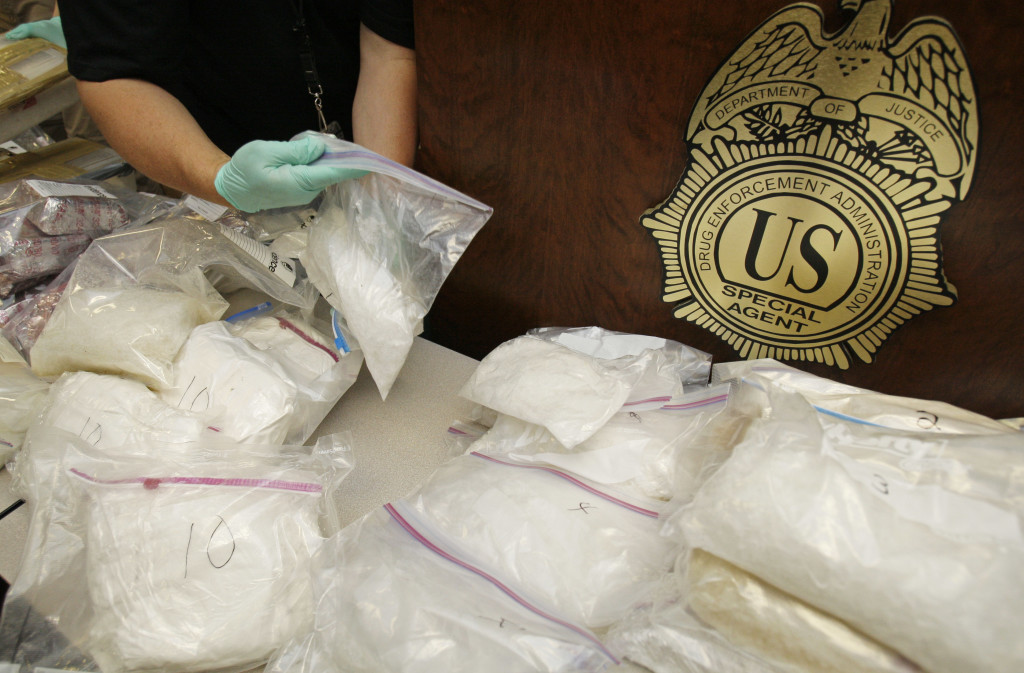DEA confidential source program running amok, DOJ says
A new report released by the Justice Department Inspector General’s office states that the DEA’s policies regarding use of high-risk confidential sources are...
The Drug Enforcement Administration’s confidential source program is out of compliance with the Attorney General’s Guidelines, according to the Department of Justice.
A new report released by the DOJ Inspector General’s office states that DEA policies regarding use of high-risk confidential sources lack oversight for issues such as how sources are used, how actions in operations are sanctioned, and why and how benefits to sources are awarded.

The audit cited issues with the program reaching as far back as 2002, stating that language in DEA requirements didn’t meet that of the AG Guidelines and “needed to integrate the
requirements into its DEA Special Agents Manual.”
“These kinds of issues are just unacceptable,” said DOJ Inspector General Michael Horowitz in a podcast interview.
Along with the potential risks this kind of oversight entails, Horowitz outlined some of the major issues found in the audit.
Sources were given free reign over illegal activities
In these types of programs, confidential sources can engage in “otherwise illegal activity,” meaning that if they need to buy or sell drugs to aid a drug bust operation, they are sanctioned to do so.
However, the Attorney General Guidelines determine what is and isn’t sanctioned as “otherwise illegal activity,” and DEA sources weren’t following those rules.
“It could jeopardize the success of its operations and expose DEA to unnecessary liability,” Horowitz said, “It could also create unforeseen consequences, for example, if a confidential source perhaps oversteps his or her boundaries, with a mistaken belief that the DEA sanctions any illegal activities in which the source participates.”
Sources weren’t rigorously chosen or reviewed
Picking and choosing confidential sources were another issue outlined in the report. AG Guidelines require the DEA to review sources who have been on the force for six or more consecutive years, but DEA reviews of its sources were lacking or non-existent.
“We found that from 2003 to 2012, the DEA committee charged with reviewing these long-term sources considered each source for an average of just 1 minute each,” Horowitz said, “and that’s when there was any review at all.”
Sources got to double-dip for cash and benefits
The DEA also provided confidential sources with death and disability benefits through the Federal Employees Compensation Act.
“We estimated that, in the one-year period from July 2013 through the end of June 2014, the DEA paid a little over one million dollars in FECA benefits to 17 confidential sources or their dependents,” Horowitz said.
In some cases , sources were being payed for their services and receiving FECA benefits even if they didn’t qualify.
The DEA was uncooperative with the investigation
According to the report, issuing the audit took over a year because the DEA wouldn’t cooperate with the inspector general’s office, and still hasn’t completely addressed the audit’s original objective.
Gaining access to source file reviews was “delayed for months at a time” and only released after Horowitz personally sought out the DEA administrator.
“Without unfettered access to information, we simply can’t do the work that the Department, the Congress, and the American taxpayers expect and require of us, and problems such as the ones described in today’s report are more likely to continue unfixed for lengthy periods of time,” Horowitz said, “We just did not get that kind of access here from the DEA and, as a result, our work on this audit was seriously delayed,”
Since the report’s release, the DEA has agreed to comply with all recommended changes suggested by the inspector general.
“I’m hopeful that these issues with the DEA are now behind us,” Horowitz said, “but you can rest assured if they’re not, we will address them, and we will report on them.”
Copyright © 2025 Federal News Network. All rights reserved. This website is not intended for users located within the European Economic Area.






